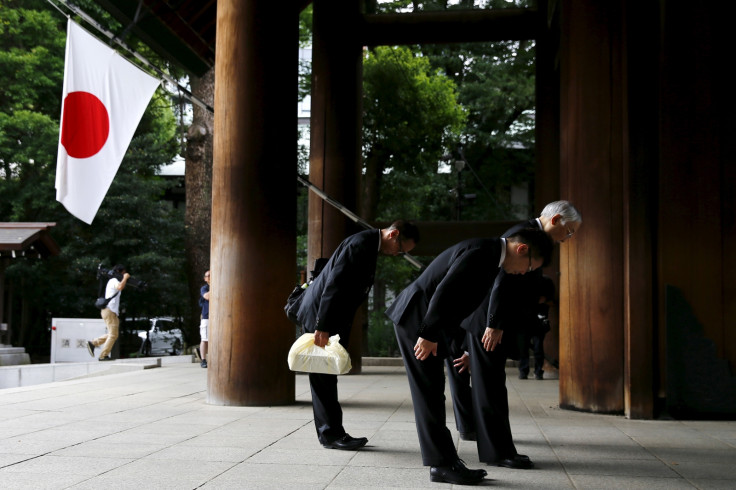Japan marks WWII surrender as China calls for more 'sincere' apology

Japan marks the 70th anniversary of the end of the World War II as Prime Minister Shinzo Abe expressed "profound grief" for his country's aggressive past.
Though he did not offer any fresh apology in his speech, which was closely watched by neighbours who suffered because of Japan's wartime actions, Abe acknowledged the earlier ones.
"Japan has repeatedly expressed the feelings of deep remorse and heartfelt apology for its actions during the war," he said during his speech from his official residence in Tokyo.
"We must not let our children, grandchildren, and even further generations to come, who have nothing to do with that war, be predestined to apologise."
"Still, even so, we Japanese, across generations, must squarely face the history of the past. We have the responsibility to inherit the past, in all humbleness, and pass it on to the future."
Abe sent an offering to the World War II Yasukuni shrine, seen as a symbol of Japan's earlier militarism by South Korea and China, but did not pay a visit. Abe had visited the site on earlier occasions.
Earlier prime ministers of Japan have offered repeated apologies for their brutal colonial rule and often expressed personal regret.
Shortly after Abe's remarks, China's foreign ministry said in a statement: "Japan should have made an explicit statement on the nature of the war of militarism and aggression and its responsibility on the wars, made sincere apology to the people of victim countries."
South Korea, which too suffered under Japan's colonial past, also commemorates the event. President Park Geun-hye spoke at a special ceremony while thousands of South Koreans are expected to hold anti-Japan rallies later in the day.
© Copyright IBTimes 2025. All rights reserved.





















